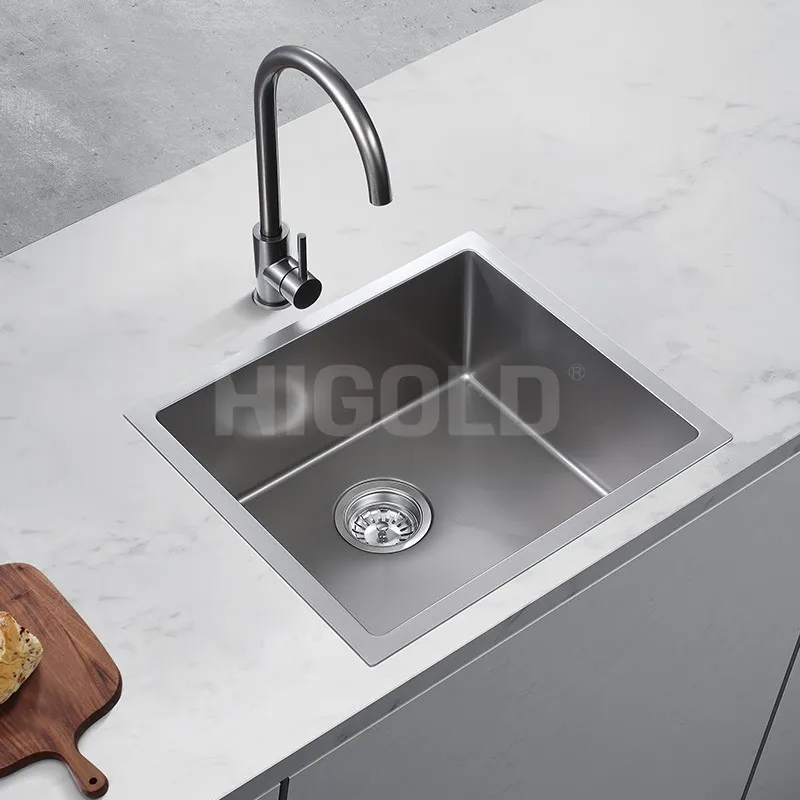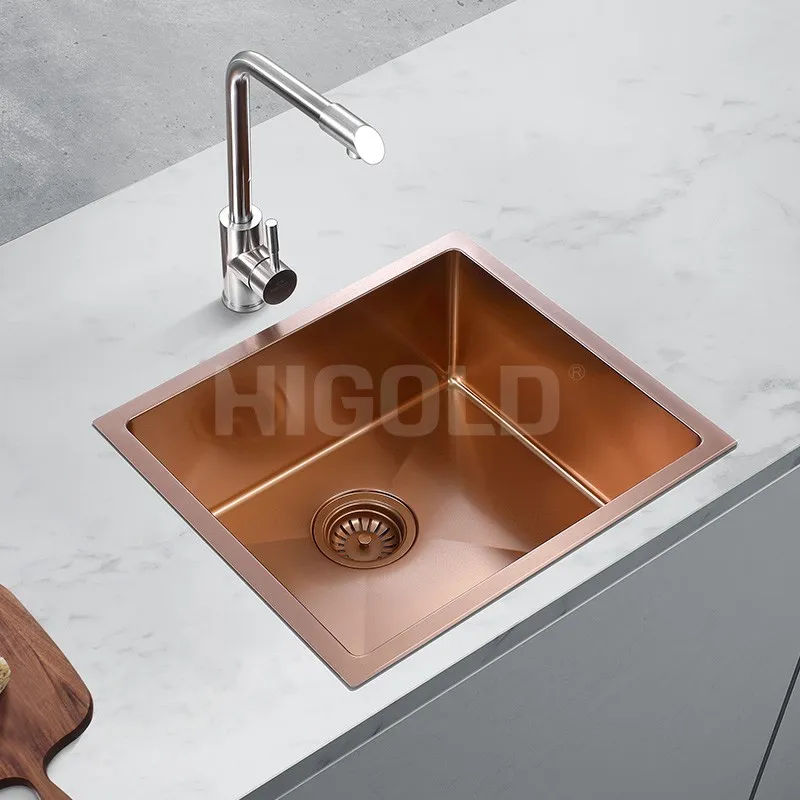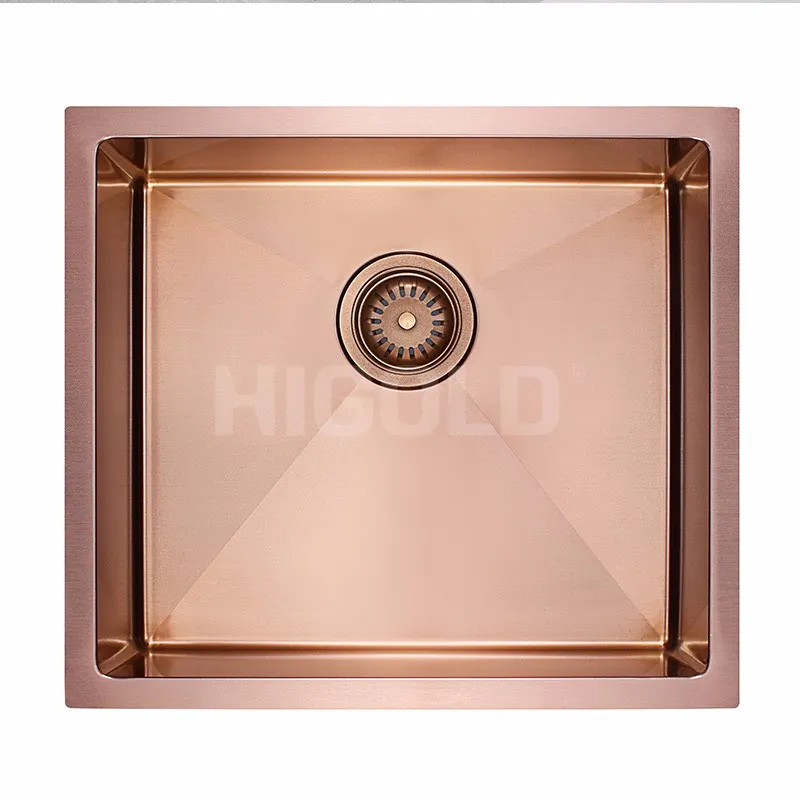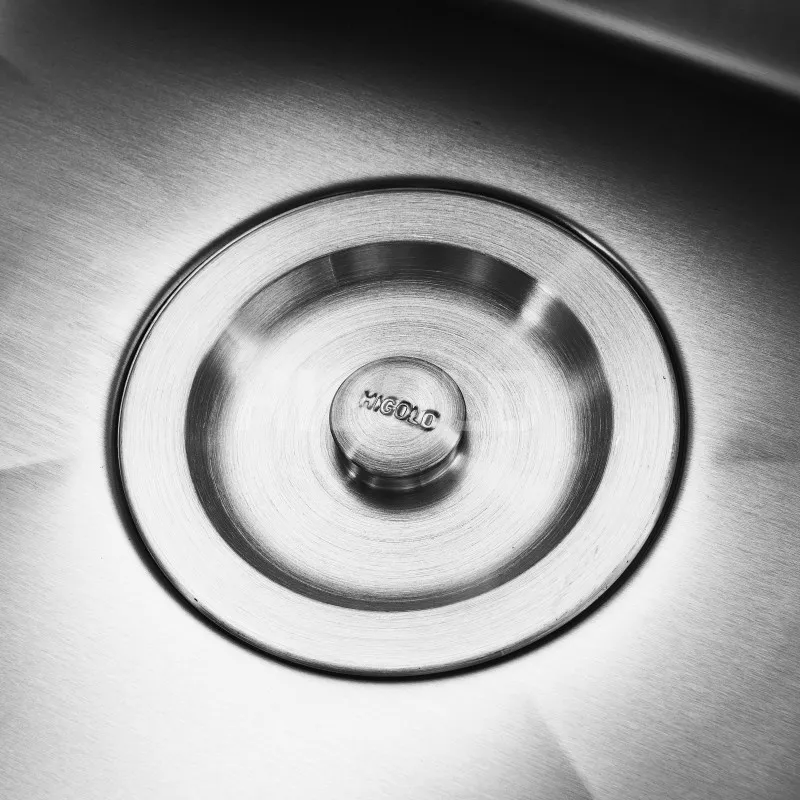In modern kitchen design, sinks, as one of the key sanitary equipment, not only play the role of cleaning and drainage, but also directly affect the beauty and convenience of the kitchen. In particular, stainless steel sinks, with their durability and easy cleaning, have become the first choice for many families and commercial kitchens. However, when choosing a stainless steel sink, many consumers will face an important problem-the thickness of the sink.
The thickness of a kitchen stainless steel sink is directly related to its service life, pressure resistance, noise control, and cleaning difficulty. So, what is the best thickness of a kitchen stainless steel sink? What factors should be considered when choosing? This article will conduct an in-depth analysis from multiple angles.

What is the best thickness of a kitchen stainless steel sink?
The thickness of a kitchen stainless steel sink refers to the thickness of the metal material of the sink panel, which is usually measured in millimeters (mm). In the market, there are many options for the thickness of kitchen stainless steel sinks, ranging from 0.3 mm to 2 mm. The thickness of a sink is usually closely related to its durability, weight, appearance and other properties. Thinner sinks are lightweight and less expensive, but more susceptible to damage, while thicker sinks are more durable but more expensive.
In addition to the thickness of the metal panel, the overall structure (such as depth, shape) and material of the sink will also affect its user experience, but in this discussion, we will focus on the thickness of the sink panel.
The relationship between kitchen stainless steel sink thickness and sink quality
Durability and pressure resistance
Thicker kitchen stainless steel sinks are generally more durable and resistant to pressure. Kitchen sinks need to withstand various physical pressures for a long time, such as collisions when washing dishes, wiping when cleaning, and the weight of pots and pans. Thinner sinks may be deformed, scratched, or even damaged due to uneven force, while thicker sinks can better withstand these daily pressures and extend their service life. Therefore, choosing a stainless steel sink with the right thickness can improve its long-term durability and damage resistance.
Noise control
During the use of kitchen stainless steel sinks, it is inevitable that there will be noises such as water flow and impact, especially when washing dishes and washing vegetables. Thinner stainless steel sinks are prone to produce larger echoes due to impact, and the impact of water flow will also make a more piercing sound. Thicker stainless steel sinks can effectively reduce these noises because thicker metal materials can absorb more sound and vibration. Therefore, if you have higher requirements for kitchen noise, choosing a thicker stainless steel sink will undoubtedly bring a more comfortable use experience.
Corrosion resistance
Kitchen stainless steel sinks are often exposed to humid environments and are in contact with water, oil, acid and alkali substances for a long time, which is prone to corrosion problems. Although stainless steel itself has good corrosion resistance, sinks of different thicknesses may have different corrosion resistance. Thicker stainless steel sinks are less susceptible to scratches and wear on the surface during long-term use, which can better maintain their corrosion resistance and extend their service life. On the contrary, thin sinks are more susceptible to scratches, wear or chemical erosion during long-term use, leading to corrosion.
Appearance and design
The thickness of the kitchen stainless steel sink not only affects its functionality, but is also closely related to the appearance design. Sinks with moderate thickness usually look more solid, elegant, and less prone to deformation. Thin sinks may dent or deform due to the inability to withstand heavy objects or collisions, affecting the appearance of the sink. Sinks with too much thickness may appear bulky and even inconsistent with the overall kitchen design. Therefore, when choosing a sink, you need to balance the style of the kitchen and personal needs to ensure that the thickness of the sink can ensure functionality without affecting the appearance.

How to choose the thickness of stainless steel sinks on the market?
The thickness of kitchen stainless steel sinks is usually divided into several common grades, and consumers can choose the appropriate thickness according to their needs. The most common thicknesses on the market are 0.5 mm, 0.8 mm, 1.0 mm, and 1.2 mm. The following are the characteristics and applicable scenarios of these thicknesses.
0.5 mm (thin sink)
Stainless steel sinks with a thickness of 0.5 mm are usually the thinnest sinks on the market. They have a lighter weight and lower cost, suitable for some families and small kitchens with limited budgets. Although cheap, sinks of this thickness are relatively fragile and easily deformed or scratched by impact and scratches, and they are noisy and not suitable for long-term high-intensity use. Suitable for families with light or short-term use.
0.8 mm (medium thickness)
The 0.8 mm thick stainless steel sink is stronger than the 0.5 mm sink and has better corrosion resistance and pressure resistance. It is suitable for daily household use and can withstand certain impact and pressure. For most families, this thickness of sink provides a good cost-effectiveness, is not easy to deform, and can effectively reduce noise, so it is a more ideal choice.
1.0 mm (standard thickness)
The 1.0 mm thick stainless steel sink occupies a mainstream position in the market and is generally considered to be a more standard choice. It is more durable and can effectively prevent the sink from deforming due to daily use, while providing good noise control. For kitchens that need to be used for a long time, the 1.0 mm thickness can balance price and performance and is suitable for most family kitchens.
1.2 mm and above (high thickness sink)
Sinks of 1.2 mm and above are considered high-end sinks, and they have excellent durability, pressure resistance and noise control performance. For high-end home kitchens or commercial kitchens, sinks of this thickness provide longer service life and better corrosion resistance. This type of sink is usually suitable for heavy-use scenarios, can withstand greater use pressure and high-intensity operation, and has a more sturdy and stable appearance.

How to choose the thickness of the stainless steel sink that suits you?
When choosing the thickness of the kitchen stainless steel sink, consumers should make comprehensive considerations based on the following needs:
Frequency of use
If the kitchen is used frequently, such as in a large family or commercial kitchen, it would be more appropriate to choose a sink of 1.0 mm or thicker. This type of sink can maintain stable performance during long-term use and is not prone to deformation or damage. For families with less frequent use, sinks of 0.8 mm or 0.5 mm can also meet daily needs, but require more careful maintenance.
Noise sensitivity
If you are sensitive to noise in the kitchen, especially the noise of water impact, you can choose a sink of 1.0 mm or thicker. This type of kitchen stainless steel sink has thicker metal material, which can effectively reduce the noise generated when the sink is used, making the kitchen environment quieter. If the noise problem is not important to you, then choose a thin sink (such as 0.8 mm).
Budget
Budget is an important factor affecting the thickness of the kitchen stainless steel sink. The thicker the sink, the higher the price, so consumers need to decide which thickness to buy according to their budget. For families with limited budgets, a 0.8 mm thick sink provides a good balance point, which is both durable and not too expensive.
Overall design of the kitchen
The kitchen stainless steel sink must not only have good performance, but also be coordinated with the overall design of the kitchen. If you pursue a simple and generous kitchen style, it is recommended to choose a sink with a moderate thickness (0.8 mm to 1.0 mm). A sink that is too thick may make the kitchen look bulky and affect the overall design.

Affordable Stainless Steel Sinks from Higold
Higold Group provides affordable, high-quality kitchen stainless steel sinks and faucets for businesses worldwide. With production lines and a robust research team, we ensure our products maintain exceptional quality while offering attractive pricing. Whether you’re looking to buy in bulk, customize your products, or inquire about special offers, Higold is the perfect manufacturing partner for your kitchen needs. Reach out for your customized quote and take advantage of our wholesale pricing today!


